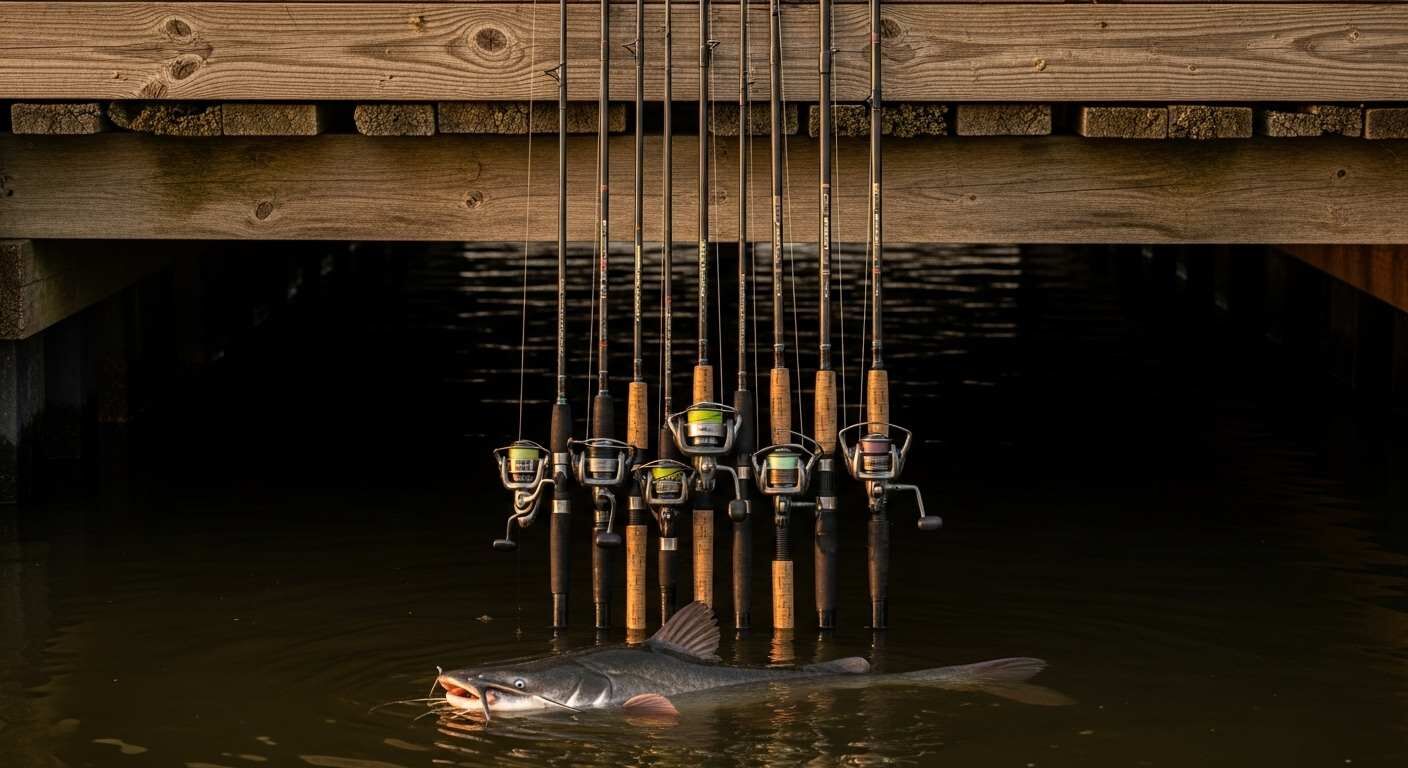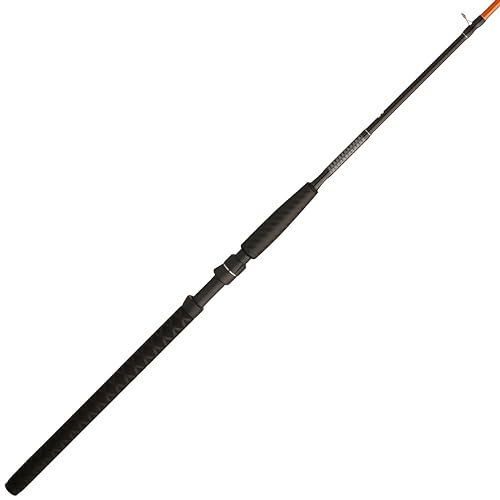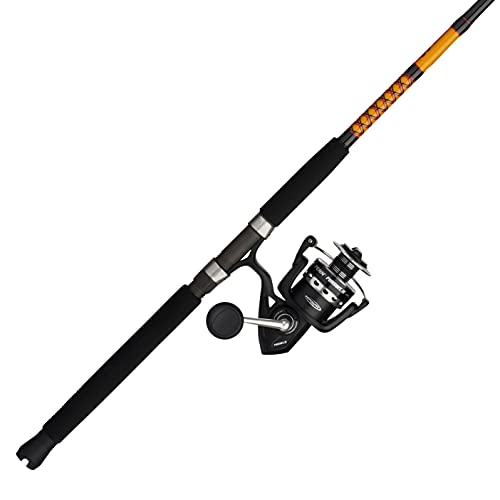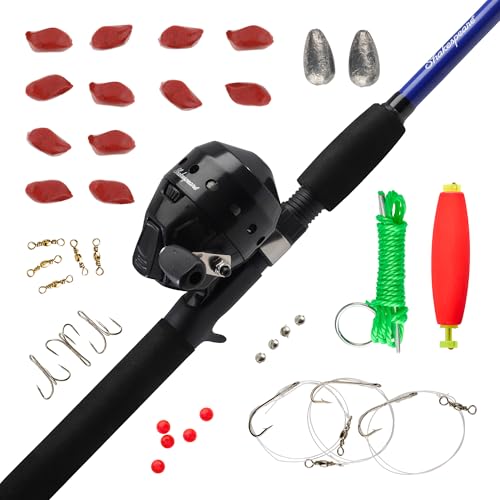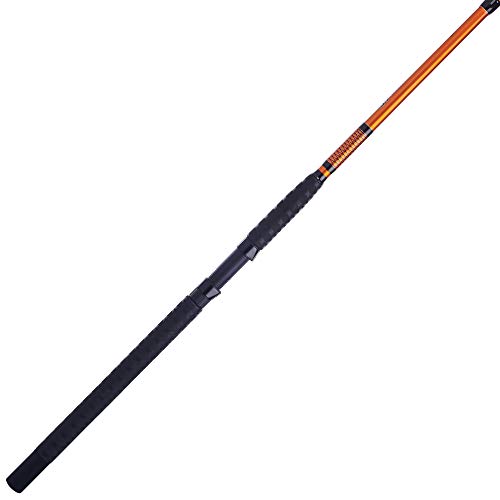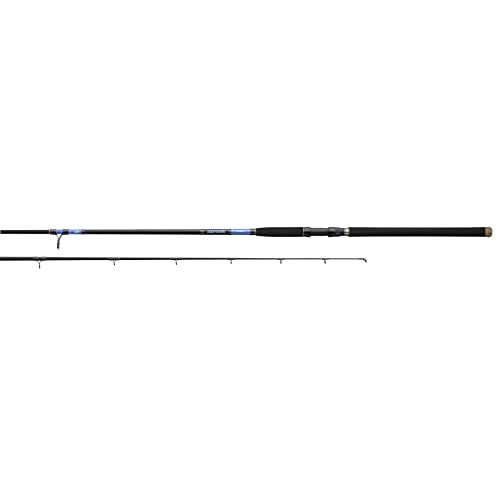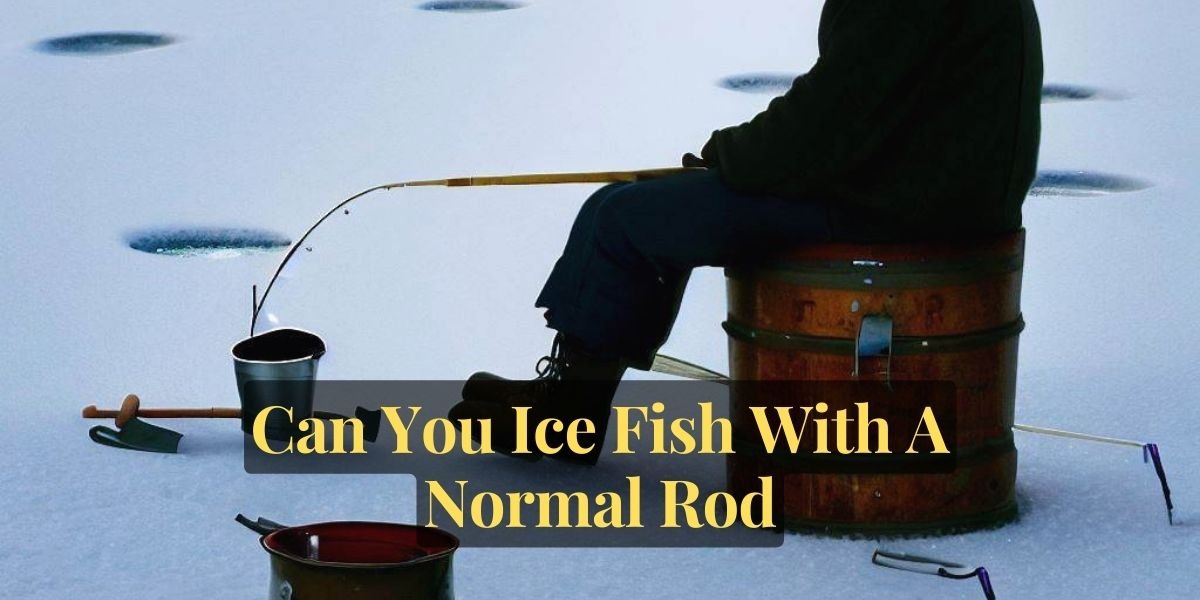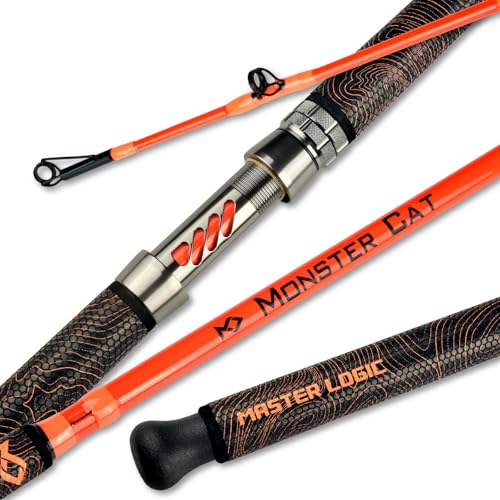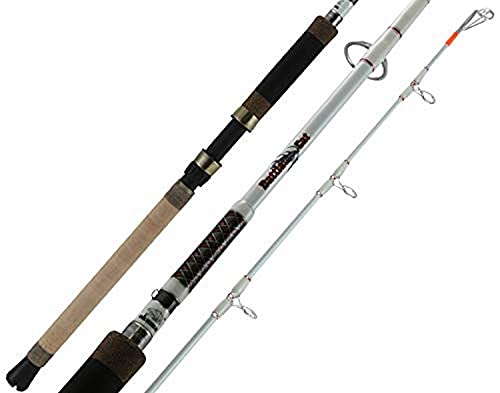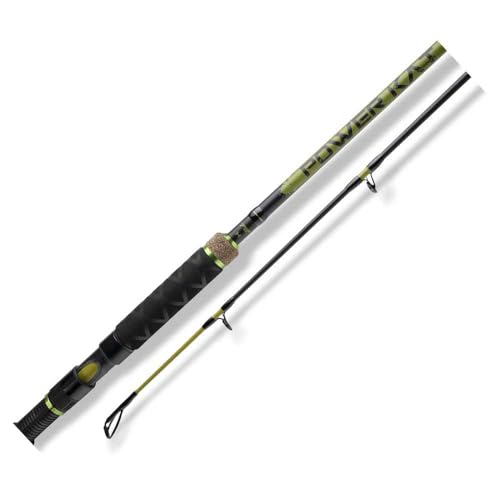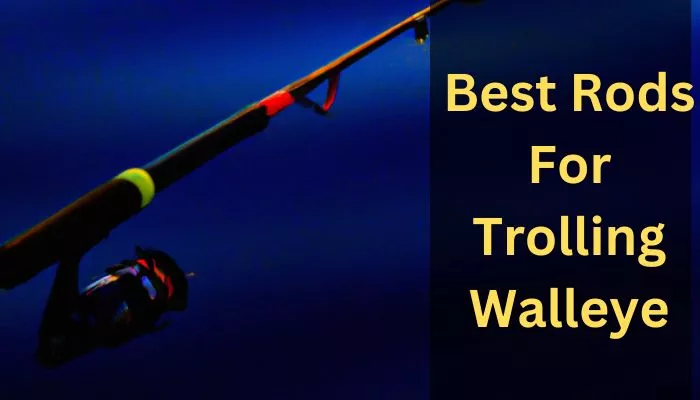Last Saturday morning, I found myself standing in the tackle shop, overwhelmed by rows of fishing rods, each promising to be the ultimate catfish weapon. Sound familiar? After watching a fellow angler lose a massive blue cat due to rod failure the previous weekend, I knew my casual bass setup wouldn’t cut it anymore.
That’s when I realized catfish fishing demands specialized equipment—and choosing the right rod can mean the difference between landing the fish of a lifetime and telling another “the one that got away” story.
Understanding Catfish Rod Power Requirements
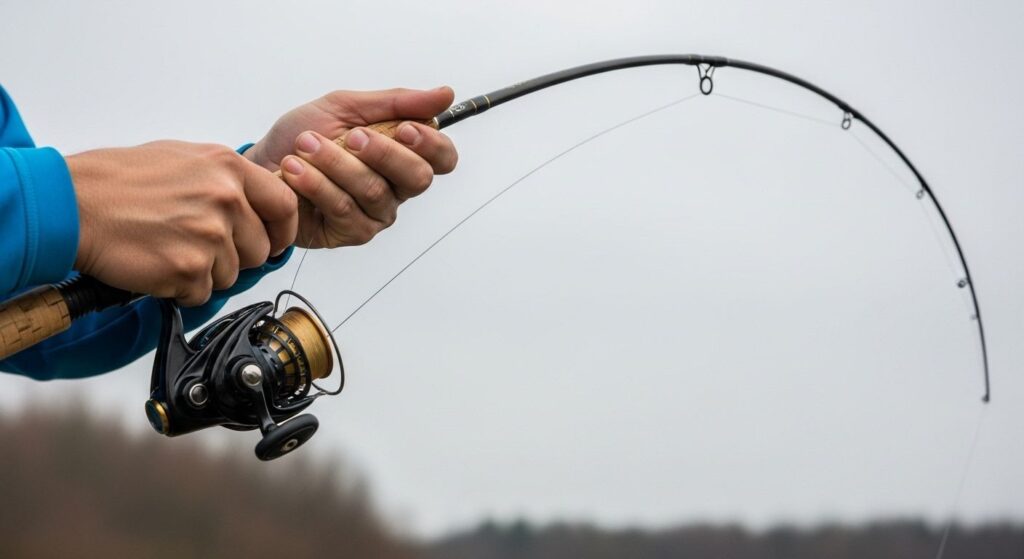
The specialized demands of catfish angling have driven significant evolution in fishing rod design over the past decade. Unlike standard freshwater applications, catfish rods must balance exceptional strength with surprising sensitivity—a combination that challenges traditional rod-building philosophies.
Power Rating Classifications
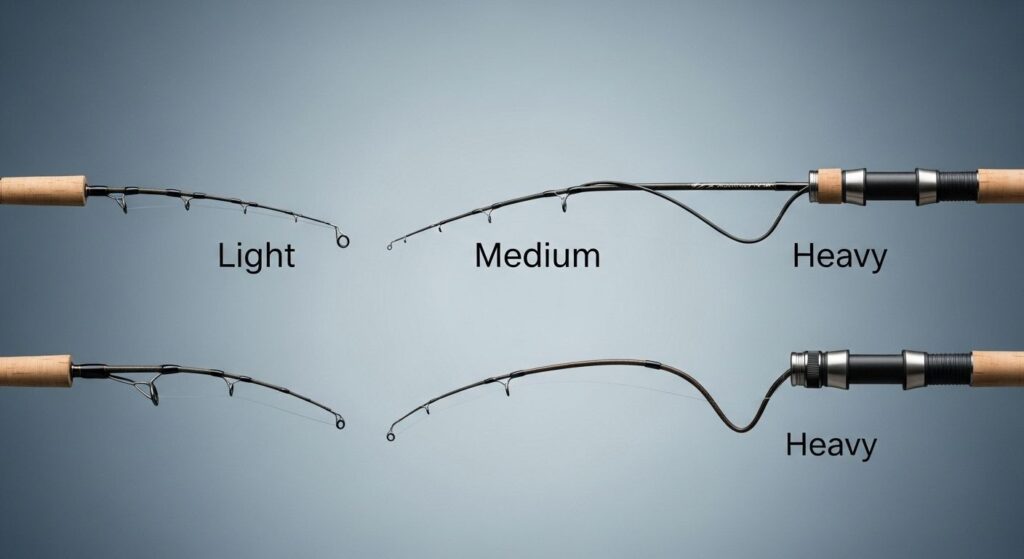
When selecting a catfish fishing rod, understanding power ratings becomes your first critical decision. Here’s how they break down:
Medium-Heavy Power (7-8 feet)
- Ideal for channel catfish (2-20 pounds)
- Casting weight: 1-6 ounces
- Perfect for finesse presentations
- Maintains sensitivity for subtle bites
Heavy Power (8-9 feet)
- Targets mixed species, including smaller blues
- Casting weight: 3-10 ounces
- Excellent all-around choice
- Balances power with versatility
Extra-Heavy Power (9-10+ feet)
- Essential for trophy flatheads and blues
- Casting weight: up to 20 ounces
- Maximum leverage and control
- Built for extreme conditions
I’ve learned through experience that underestimating power requirements leads to disappointment. That 15-pound channel cat fights like a 30-pound striper when it decides to head for structure.
Technical Specifications That Matter
Beyond power ratings, several technical aspects define a quality catfish rod:
Action Profiles
The action of your rod directly impacts both bite detection and hook-setting ability:
- Moderate Action: Bends throughout the upper half, ideal for circle hooks
- Moderate-Fast Action: Combines sensitivity with backbone
- Fast Action: Stiff with flexible tip, perfect for quick hook sets
Most modern catfish rods feature progressive actions that provide tip sensitivity while maintaining butt section power—exactly what you need when that 40-pound blue decides to make a run.
Length Considerations
Rod length affects multiple performance aspects:
| Length | Best Use | Advantages |
|---|---|---|
| 7-8 feet | Boat fishing, tight quarters | Better control, easier handling |
| 8-9 feet | All-around use | Balanced casting and leverage |
| 9-10 feet | Bank fishing, distance casting | Maximum casting distance |
| 10-12 feet | Specialized bank applications | Ultimate reach and leverage |
Material Construction: Finding the Right Balance
The backbone of any catfish rod lies in its blank construction. Let’s explore the three primary materials:
Fiberglass Rods
Traditional fiberglass construction offers:
- Exceptional durability
- Natural shock absorption
- Budget-friendly pricing
- Heavier weight (drawback for some)
The Ugly Stik catfish rod series exemplifies fiberglass done right, utilizing their Ugly Tech construction that blends graphite with fiberglass for enhanced performance.
Carbon Fiber/Graphite Rods
High-modulus carbon provides:
- Superior sensitivity
- Lighter weight
- Faster action potential
- Higher price point
Premium options like certain St Croix catfish rod models showcase 24T carbon fiber technology for anglers demanding peak performance.
Composite/Hybrid Construction
The sweet spot for many anglers:
- Balanced sensitivity and durability
- Moderate pricing
- Versatile performance
- Popular among serious catfish anglers
Species-Specific Rod Selection
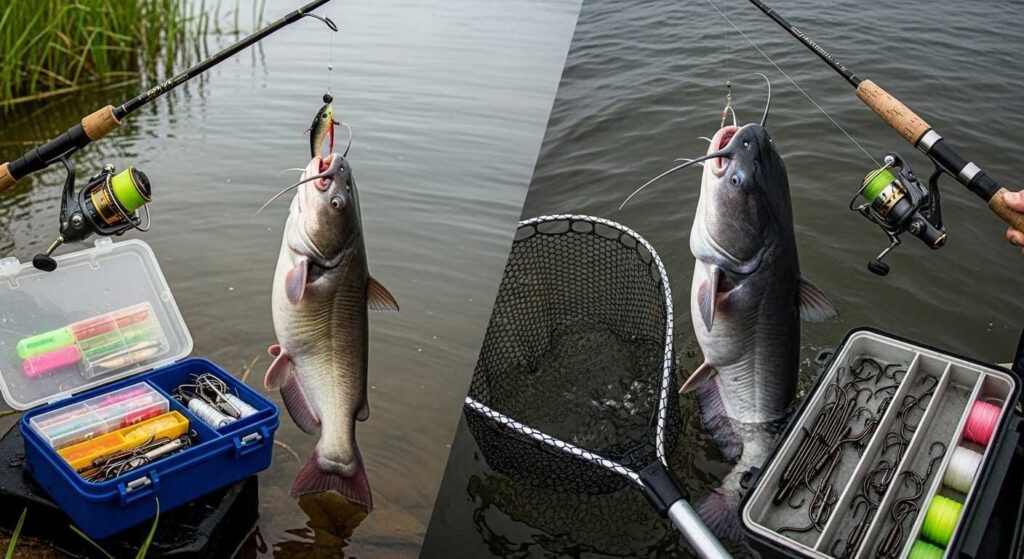
Different catfish species demand different approaches. Here’s my breakdown based on extensive field experience:
Channel Catfish Setup
For channels averaging 2-10 pounds:
- Rod Power: Medium-heavy
- Length: 7-8 feet
- Action: Moderate to moderate-fast
- Line Weight: 12-20 lb test
The Shakespeare catfish rod offerings in this category provide excellent value for dedicated channel cat anglers. Their medium-heavy models balance sensitivity for detecting light bites with enough backbone for solid hook sets.
Related Reading: Check out our guide on selecting the perfect spinning reel for catfish to complete your channel cat setup.
Flathead and Blue Catfish Requirements
When targeting trophy cats exceeding 50 pounds:
- Rod Power: Heavy to extra-heavy
- Length: 8-10 feet minimum
- Action: Moderate with powerful butt section
- Line Weight: 30-80 lb test
The Rippin Lips catfish rod series specifically addresses these heavy-duty requirements with reinforced blanks and oversized guides designed for extreme catfish applications.
Bank vs Boat Fishing Configurations
Your fishing location dramatically influences optimal rod selection:
Bank Fishing Specialization
Bank anglers face unique challenges requiring:
- Extended casting capabilities
- Increased leverage for fish control
- Durability for rough handling
The 9-12-foot models in various catfish rod brands like Daiwa’s Beef Kitty series excel here. I’ve found the extra length invaluable when fishing from elevated banks or around shoreline obstacles.
Boat Fishing Optimization
Boat-based catfish fishing favors:
- Shorter, more maneuverable designs (7-8 feet)
- Enhanced control in confined spaces
- Quick response for multiple rod management
Catfish rod baitcaster models in this length range provide the precision needed for techniques like bumping or controlled drifting.
Guide Systems and Hardware Components
Often overlooked but critically important, the guide system on your catfish rod determines long-term performance:
Guide Materials
Alconite Guides
- Superior durability with heavy lines
- Smooth casting with minimal friction
- Resistant to grooving from braided lines
- Standard on quality catfish rods
Stainless Steel Guides
- Budget-friendly option
- Adequate for monofilament
- May wear with braided lines
- Common on entry-level models
Reel Seats and Handles
Look for:
- Machined aluminum locking rings
- Cushioned hoods for reel protection
- Extended handles for two-handed casting
- Non-slip grip materials
The Okuma catfish rod lineup demonstrates proper hardware implementation with their reinforced reel seats designed to handle the torque of large catfish battles.
Best Catfish Rod Options by Category
After extensive testing and research, here are my top recommendations across price categories:
Budget Champions ($40-70)
Ugly Stik Catfish Special Series
- 4 length options (7-10 feet)
- Proven Ugly Tech construction
- Clear tip design
- Excellent warranty
Key Features:
- Two-piece design for transport
- Rubberized grips
- Medium-heavy power
- Perfect for beginners
Mid-Range Masters ($70-120)
Mustad Power Kat Series
- High-modulus carbon construction
- Progressive action profile
- Alconite guides standard
- Often on sale from $119.99
The catfish rod building community particularly favors Mustad blanks for custom projects due to their exceptional strength-to-weight ratio.
Premium Performers ($120+)
Catch the Fever Hellcat Series
- Extreme durability focus
- Multiple power options
- Professional-grade components
- Lifetime warranty consideration
For anglers ready to invest in top-tier equipment, these represent the pinnacle of catfish rod companies’ offerings.
Rod and Reel Combo Considerations
While selecting individual components offers maximum customization, the best catfish rod and reel combo packages provide several advantages:
Benefits of Combo Packages
- Balanced Performance: Manufacturers match rod and reel specifications
- Cost Savings: Typically 20-30% less than separate purchases
- Simplified Selection: Eliminates compatibility guesswork
- Warranty Coverage: Often includes comprehensive protection
Top Combo Recommendations
For Channel Catfish:
- Ugly Stik catfish rod combo (GX2 series)
- 7’6″ medium-heavy with size 4000 reel
- Pre-spooled with 20 lb mono
- Under $100 complete
For Trophy Catfish:
- Heavy-action 8-10 foot combinations
- Size 6000+ reels with strong drags
- Capacity for 200+ yards of 30 lb line
Line Weight and Compatibility
Matching line weight to rod specifications ensures optimal performance and prevents equipment failure:
Monofilament Considerations
- Stretches under load, protecting rod from shock
- Requires larger guides for thick diameters
- 20-50 lb test most common
- Budget-friendly option
Braided Line Applications
- No stretch demands quality rod construction
- Smaller diameter allows heavier tests
- 30-80 lb braid typical for big cats
- Requires quality guides to prevent grooving
The catfish rod setup you choose should specifically accommodate your preferred line type. Many modern rods now feature braid-ready guide systems as standard equipment.
Maintenance and Care Tips
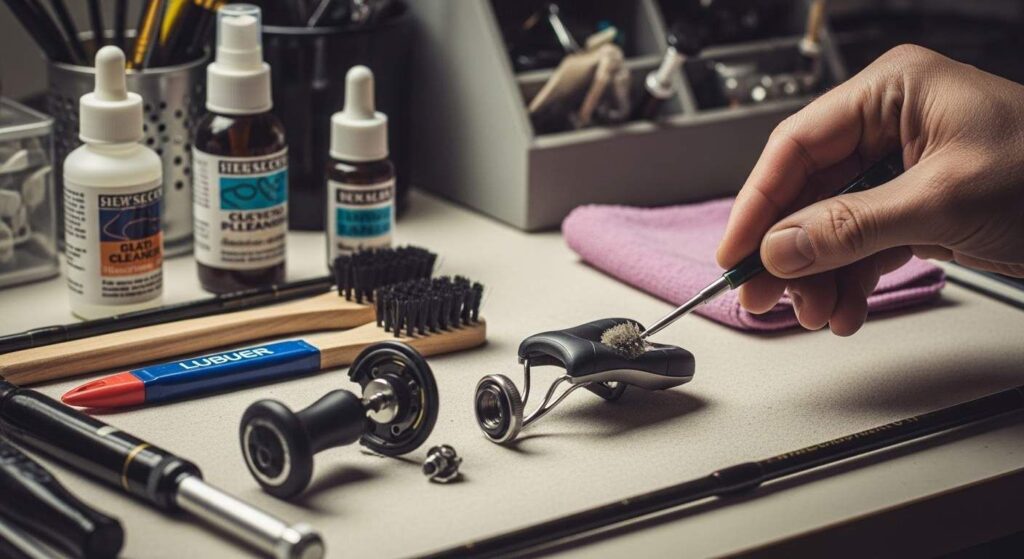
Protecting your investment through proper maintenance extends rod life significantly:
Regular Maintenance Schedule
After Each Trip:
- Rinse with fresh water
- Check guides for damage
- Inspect the reel seat operation
- Clean cork or EVA handles
Monthly Inspection:
- Examine the blank for cracks
- Test guide wraps
- Lubricate reel seats
- Check ferrule connections (two-piece rods)
Annual Service:
- Professional guide replacement if needed
- Rewrap damaged areas
- Consider a catfish rod building kit for DIY repairs
Storage Best Practices
- Store vertically when possible
- Use rod sleeves for protection
- Avoid extreme temperatures
- Never lean heavy objects against rods
For detailed maintenance procedures, see our article on extending fishing rod lifespan.
Frequently Asked Questions
Q: What’s the best all-around catfish rod length?
A: For versatility, an 8-foot heavy-power rod handles most situations. It provides good casting distance while remaining manageable in boats and from banks.
Q: Should I choose spinning or casting for catfish?
A: Both work well, but catfish rod casting models offer better control with heavy weights and during fights. Spinning gear excels for finesse presentations and lighter applications.
Q: How much should I spend on a catfish rod?
A: Quality options start around $60. The Ugly Stik and similar brands offer excellent performance at this price point. Spend more for specialized features or extreme durability needs.
Q: Can I use a surf rod for catfishing?
A: While surf rods share some characteristics, dedicated catfish rods feature optimized actions and power ratings for freshwater applications. The guide spacing and handle lengths differ significantly.
Q: What makes a rod “catfish-specific”?
A: Catfish rods feature reinforced blanks, oversized guides, longer handles, and progressive actions designed for heavy baits, strong fish, and challenging conditions unique to catfish angling.
Q: How do I match rod power to catfish size?
A: Use medium-heavy for channels under 15 pounds, heavy for mixed species up to 30 pounds, and extra-heavy for targeting trophy blues and flatheads exceeding 40 pounds.
Conclusion and Next Steps
Selecting the right catfish fishing rod transforms your angling experience from frustrating battles with inadequate equipment to confident pursuits of trophy fish. Remember these key takeaways:
- Match power to species: Don’t overgun small channels or underestimate big blues
- Consider your environment: Bank anglers need length; boat anglers value maneuverability
- Invest in quality guides: They’re the difference between years of service and premature failure
- Balance your setup: Ensure rod, reel, and line work together harmoniously
Your Action Plan
- Assess your needs: Identify primary species and fishing locations
- Set a budget: Quality starts around 60, with premium options exceeding 150
- Test when possible: Visit tackle shops to handle different models
- Start versatile: An 8-foot heavy-power rod covers most situations
- Upgrade gradually: Build your arsenal as you identify specific needs
Whether you’re stepping up from casual catfishing or building a specialized arsenal, the right rod makes every trip more enjoyable and productive. The phantom catfish rod of perfect specifications might seem elusive, but armed with this knowledge, you’re ready to make an informed decision that’ll serve you well for seasons to come.
Ready to complete your catfish setup? Check out our guides on selecting catfish reels and choosing the right fishing line for the ultimate trophy-catching combination.

